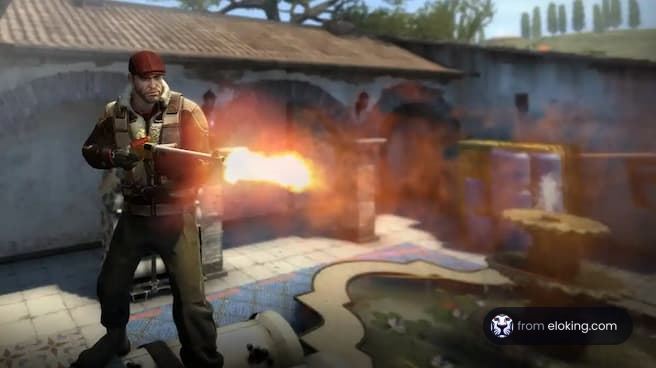Asik Cloud Insights
Your gateway to the latest trends in technology, cloud computing, and digital innovation.
Beyond the Radar: Decoding the Secrets of CSGO's Overwatch System
Uncover the hidden truths of CSGO's Overwatch system! Dive in to discover how it works and its impact on your gaming experience.
Understanding CSGO's Overwatch: How It Works and Why It Matters
Counter-Strike: Global Offensive (CSGO) has implemented a unique system known as Overwatch to enhance the gaming experience and maintain a fair playing environment. This system enables experienced players to review reported matches and assess suspected cheaters or players exhibiting disruptive behavior. The Overwatch process begins when players report someone for cheating or exhibiting toxic behavior, which then gets queued for review by other players who have reached a certain rank and are part of the Overwatch community. Once a report is selected, the reviewer watches a series of game clips to determine whether the accused player violated the game’s code of conduct.
Why does the Overwatch system matter? It plays a crucial role in preserving the integrity of CSGO by allowing the community to actively participate in the moderation process. This not only discourages cheating and negative behavior but also empowers players by giving them a voice in maintaining the game's standards. The result is a more enjoyable gaming experience for everyone, as players can trust that the matches are fairer. Ultimately, understanding how CSGO's Overwatch functions can help players appreciate its significance in promoting a better community and overall gameplay.

Counter-Strike has evolved into one of the most popular first-person shooter games in the world. Players engage in tactical team-based gameplay, where strategy, teamwork, and skill are essential for success. For example, in the latest update, the cs2 server is reserved for game lobby, enhancing the gaming experience by allowing players to organize matches more effectively.
Common Misconceptions About CSGO's Overwatch System Explained
The Overwatch system in CSGO is often misunderstood by the community, leading to prevalent misconceptions that can affect players' perceptions of its effectiveness. One common myth is that players believe that Overwatch reviews are automatically biased against them if they are reported multiple times. In reality, each case is reviewed by a team of volunteer players who assess evidence critically based on gameplay behavior and not the number of reports alone. This independent assessment aims to maintain fairness and ensure that only truly disruptive behavior results in penalties.
Another misconception is that the Overwatch system serves as a punishment tool rather than a mechanism for improving player conduct. Many players think that the system’s main objective is to ban or penalize users, which is not entirely accurate. The primary goal is to foster a better gaming environment by addressing negative behavior patterns and encouraging players to improve. By doing so, the system helps uphold community standards and ensures that competitive matches remain enjoyable for everyone involved.
How to Prepare for an Overwatch Case: Tips and Insights from Experts
Preparing for an Overwatch case requires a strategic approach, and gaining insights from experts can significantly enhance your preparation. Start by familiarizing yourself with the case guidelines, as each case may have unique requirements and expectations. Create an organized checklist that includes essential steps, such as reviewing relevant documentation, gathering evidence, and understanding the key issues at stake. This proactive approach ensures no detail is overlooked and helps build a robust case.
An important aspect of preparation is to collect expert opinions and insights that can substantiate your case. Engage with professionals who have experience in Overwatch cases, whether through personal interviews, webinars, or published materials. Their perspectives can help you identify potential pitfalls and effective strategies. Additionally, consider assembling a group of peers or advisors to discuss your findings and refine your arguments, ensuring that your case is as strong as possible.